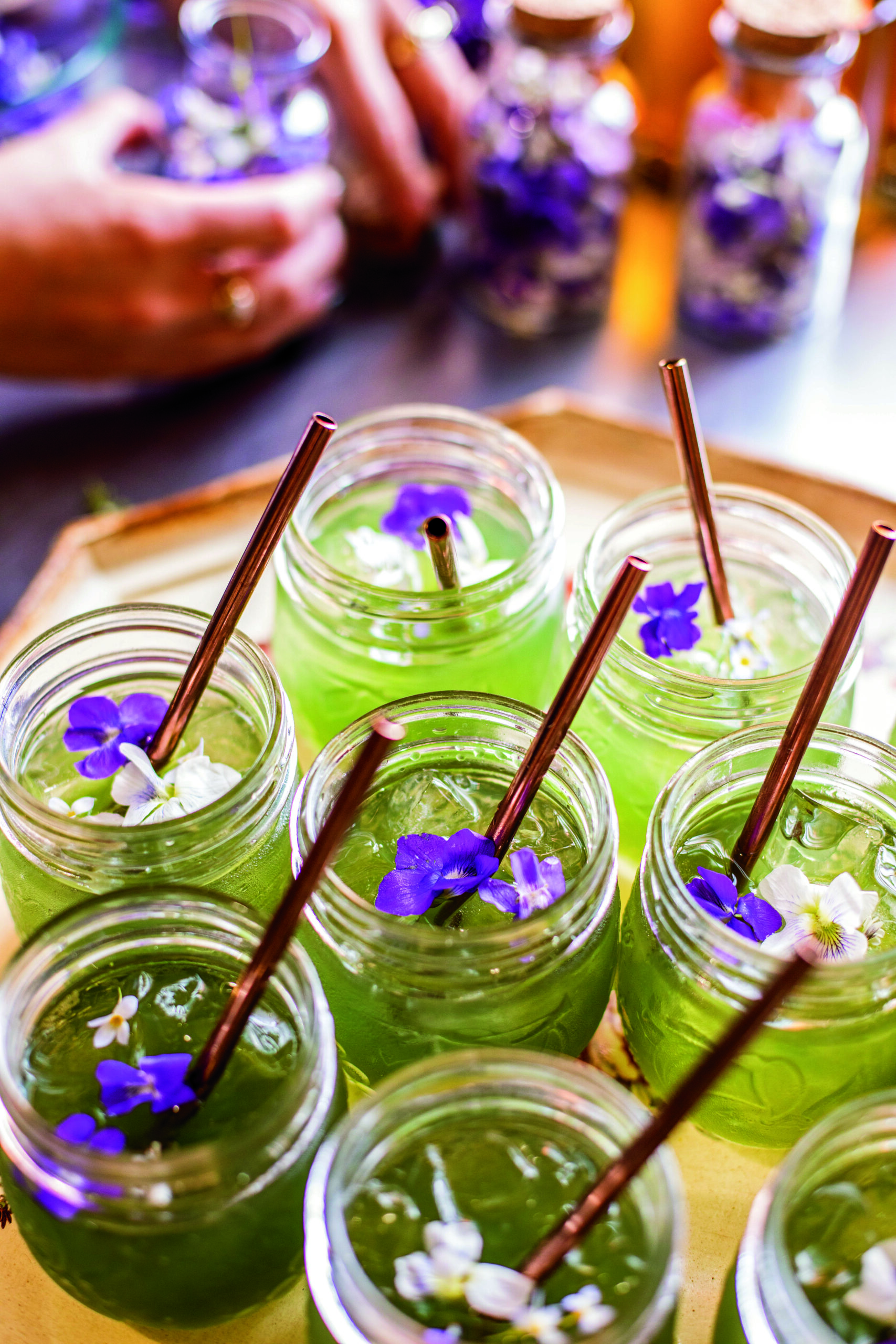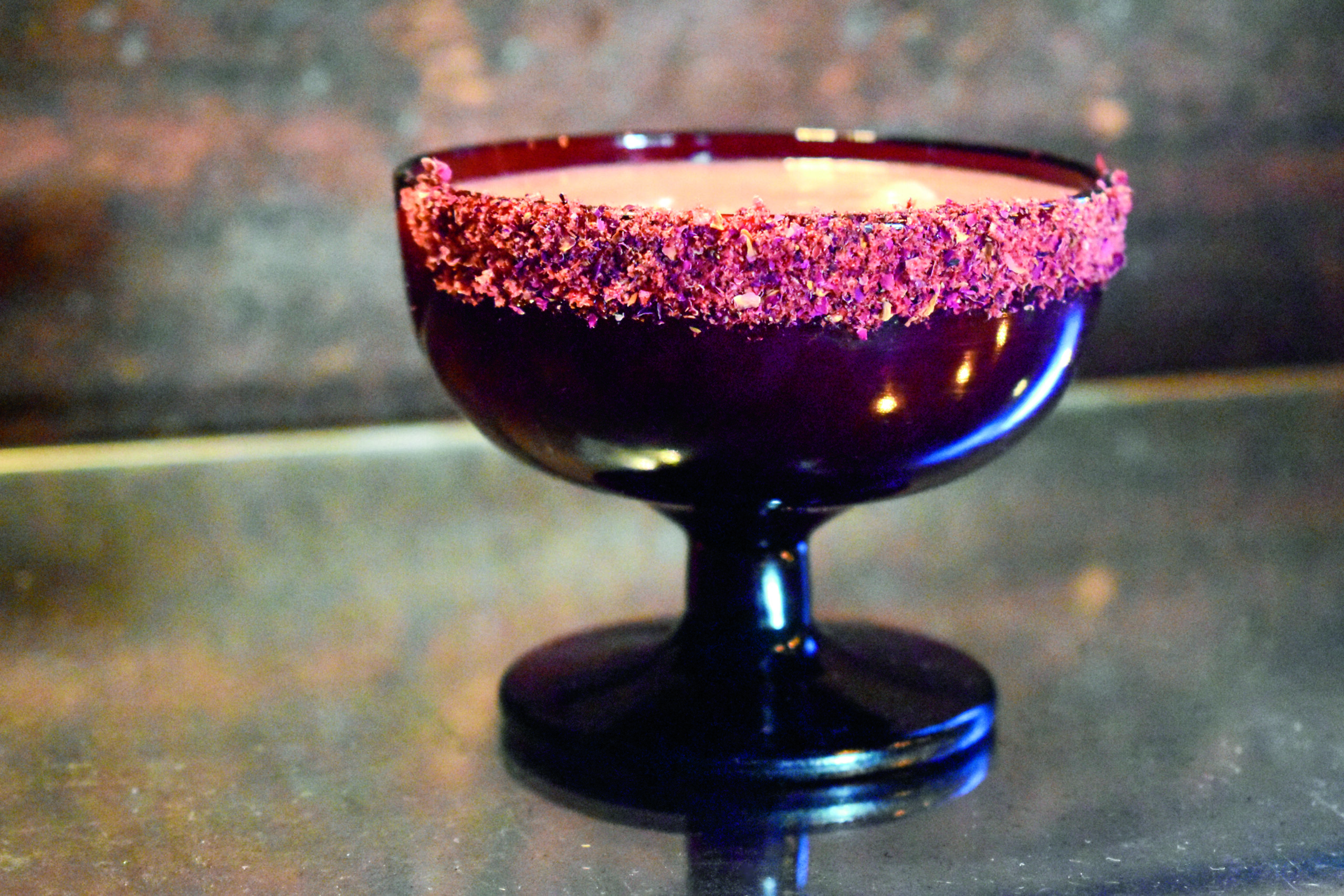
Cassandra Elizabeth Sears mixes magic and plants in Botanical Bar Craft – your guide to herbal cocktails as an instinct for environmental stewardship. Healthier people are more mindful and my vision is to connect people to plants, which inevitably inspires vital health as well make better decisions. One of the joys of my work with the Remedy Cocktail Co is journeying to local farms to pick fruit. I also take satisfaction knowing it benefits the local agricultural economy and the farmers.
I use my platform as a bartender to teach people about the astounding and multiplicitous benefits of plants– and chose to include both alcoholic and non-alcoholic tonic recipes in my new book Botanical Bar Craft because they are equally important.
While I have observed that people want to resensitise and expand their consciousness through sobering up, alcohol continues to have roles to play. As herbalists well know, alcohol is an excellent solvent for extracting many medicinal plant compounds. Alcohol has also had an important role in the development of human consciousness. I am an everyone-is-invited kinda gal!
Sometimes I subconsciously make the mistake of assuming that everyone else knows what I know. But when I share my purpose in life – popularising the use of tonics – people’s reactions remind me that they don’t really know what a tonic is. When people hear the word, most think of only one thing: the astringent and bitter quinine-laced bubbly mixer called tonic water.
This type of tonic water does have medicinal origins, but the essential meaning of the word goes deeper. ‘Tonic’ literally refers to toning; it describes an agent that is toning to the system, that makes it stronger. Tonics are an extension of nutrition and diet, and they can include a diverse world of phytochemicals (natural chemicals found in plants) that gently protect us from the perils of life when we make them a regular part of our diet.
It might be argued that in today’s modern world, in the face of immeasurable toxicity and stress, there has never been a better time for the knowledgeable use of plants as tonics. Good health is the accumulation of health-promoting choices, like money in the bank. It is time to say goodbye to sticky-sweet mocktails, and a buoyant hello to tonics!
This is a recipe made for carrying the vitality and nutrition of spring greens. Some suitable foraged greens to add to this juice are chickweed (Stellaria media), claytonia, violet leaves, and dandelion greens. Use the edible greens popping up in your garden! The vegetables chosen are a little juicier and help stretch out the potent flavour and effect of the wild weeds.
The mint and parsley improve palatability. Drink the juice as is, or top with sparkling lemon ginger kombucha for a stimulating non-alcoholic cocktail.
Serves: 4 Ingredients:1 cucumber, ends cut off
½ bunch celery
1 apple, coarsely chopped
1 handful edible spring weeds
Several sprigs fresh mint
Several sprigs fresh parsley
Thumb-sized piece ginger root
1 organic lemon, halved
120ml cold lemon-ginger kombucha
If you don’t have a juicer, you can substitute a high-quality store-bought green juice for the spring weeds, mint, and parsley.

This luscious drink is a chocolate-covered strawberry Martini with damiana and schisandra. Originally created for a Valentine’s Day event, I used strawberry powder made by the same farmer who grew the strawberries I had picked and frozen the previous summer.
Serves: 4 Ingredients:2 tablespoons freeze-dried strawberry powder
2 tablespoons Schisandra berry powder
¼ cup (65g) frozen strawberries
¼ cup (25g) raw, chopped cacao paste
¼ cup (10g) damiana leaf
2 vanilla beans, scraped
1 teaspoon cayenne powder
¼ cup (60 ml) raw unfiltered honey
You can add a splash or two of cream or spike the drink with vanilla bean vodka if desired. Add either or both of these ingredients to the cocktail shaker just before mixing.
This feature has been extracted from Botanical Bar Craft: A Guide to the Art of Apothecary Cocktails and Herbal Tonic Elixirs by Cassandra Elizabeth Sears (£30, Chelsea Green Publishing), out now, originally featuring in Spring Issue 194.

Cassandra Elizabeth Sears is an apothecary bartender, gardener, and herbalist. She has been studying herbal medicine for sixteen years, growing lush gardens while working as an organic gardener, and playing in the wild while mixing drinks inspired by nature. She enjoys the dynamic intersection of the hospitality industry, wilderness, and organic agriculture in her native state of Maine. A graduate of the clinical herbalist training program at the Vermont Center of Integrative Herbalism, she has a modest apothecary and private wellness consultation practice where she partners with individuals for health-coaching


Join the Academy and learn from some of the best spiritual
and wellbeing teachers in the world
Join the Academy and learn from some of the best spiritual
and wellbeing teachers in the world
Join the Academy and learn from some of the best spiritual
and wellbeing teachers in the world
